‘Our Son is a Topper & an Author’: Couple Shares How to Ace Homeschooling
Meet the Pardiwala couple from Mumbai, who are homeschooling their sons aged 15 and 21. They share insights on everything about homeschooling - from dilemmas, challenges, structure, daily routines, milestones to learnings.
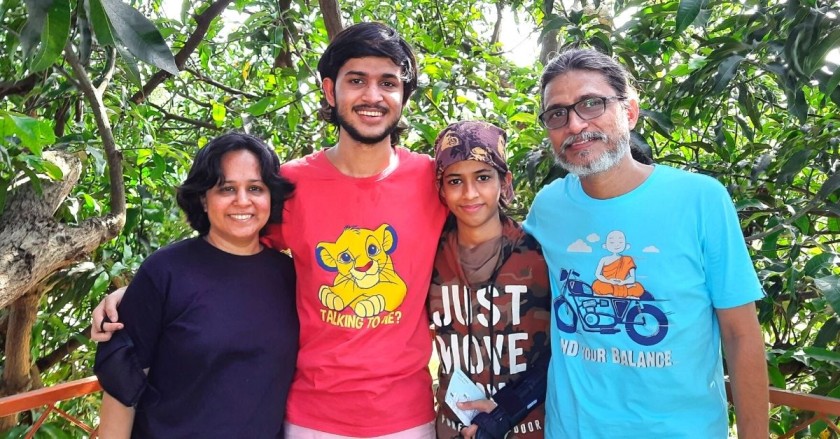
At 21, Shahen is a published author, positive psychology coach, scriptwriter and public speaker. His book ‘Burnout No More’ was recently purchased by a renowned school in Mumbai and Shahen has been invited by several schools to talk about this book on examination induced stress.
For someone as young as him, one might guess he set his goal of writing a book from early on. But becoming a writer was never a part of his childhood dreams.
From tennis, dance, journalism, advertisements to coding, his career goals changed at various junctions just like every other kid.
The only difference was he tried his hand at all of them before freezing on his current profession. He played tennis for six months, learnt to code, enrolled himself in a dance class and interned at an ad agency.
Labelling this as a ‘process of elimination’, Shahen had the liberty to fail and make mistakes without being under pressure to quickly hop onto his definite career ride.
It comes as a surprise to many when Shahen reveals he is a product of homeschooling. He chose to drop out of school in class seven. He later joined a college but soon decided institutional learning was not for him.
Meanwhile, his brother, Shahaan studied in school till class two. For the last eight years, he too has been homeschooled. He wants to become an animal conservation expert.
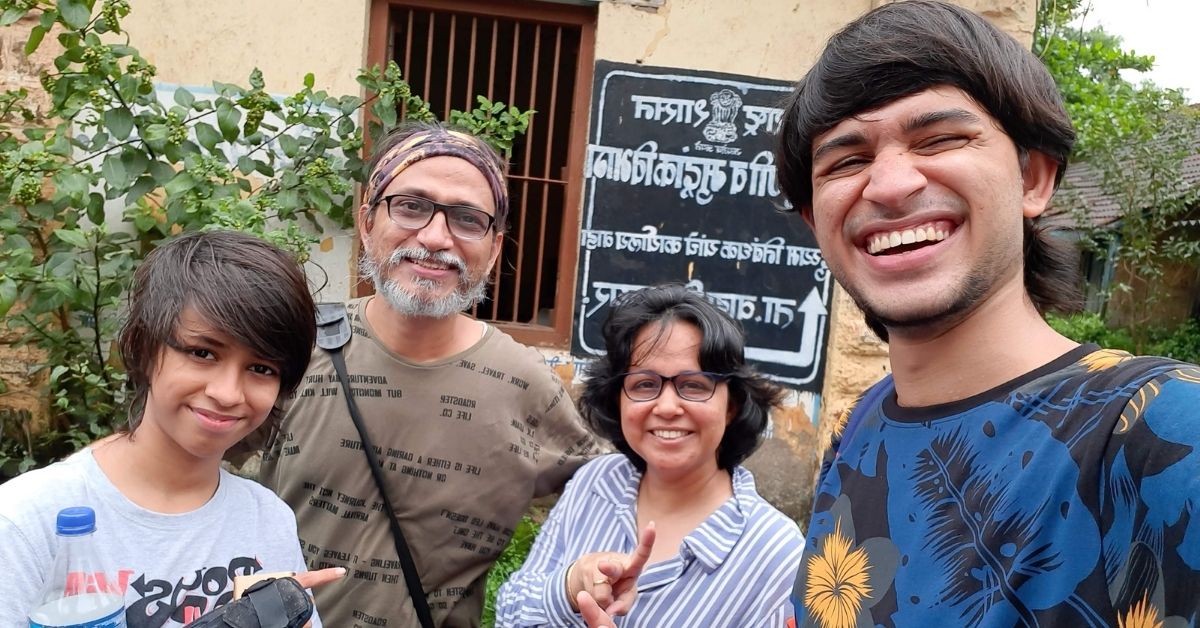
It was neither financial compulsion nor any learning disability that made Shahen and Shahaan’s parents opt for homeschooling. In fact, both the brothers were top rankers in their respective classrooms.
“It was the freedom, discipline and a stress-free lifestyle that appealed to us the most. We did not want our sons to be defined with degrees, rankings and studies. Learnings, setbacks, creativity, life skills should be the key ingredients for every child while growing up,” Sonnal Pardiwala, the matriarch, tells The Better India.
Shahaan, who is currently in his final year of graduation, says, “The best part about homeschooling is having the freedom to go to a beach on a Wednesday afternoon. I have more control over my routine so I have to be vigilant about how I spend my time and energy. Studying does not feel like a burden.”
Sonnal and her husband, Nozzer are both tutors by profession. They share insights on everything about homeschooling – from dilemmas, challenges, structure, daily routines, milestones to learnings.
What homeschooling entails
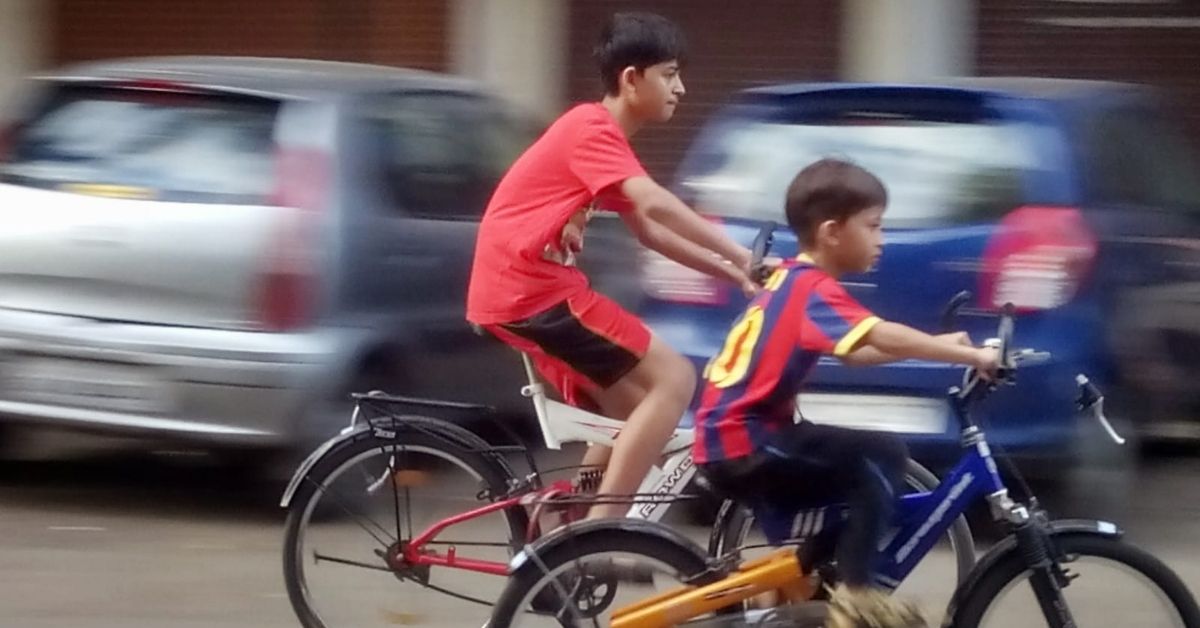
Sonnal, who is originally from Surat, was a pioneer in her family in many ways. She fought hard to pursue Masters in Psychology and was the first one in her family to complete her education. She did a love marriage outside her community back when it was frowned upon.
So choosing to opt for an unconventional path to raise the children was not surprising. However, the irony is not lost upon Sonnal who is proud of her academic degrees.
“As a student, I did not realise the limitations of a set curriculum or classroom teaching. When I started taking tuitions, it suddenly dawned on me the futility of punishments, homework, mugging and result-oriented outcomes. Why should a child be subjected to homework after attending several classes and school? The triggering point was in 2013 when I attended an annual meet of homeschooling parents. There I met so many bright, confident, kind and smart children,” says Sonnal.
The decision was followed by a lot of ‘ifs’ and ‘buts.
“Was I taking away the laurels that my kids get in school? What if they resent me or regret this in future? Will the discipline set in? What will my children do by sitting at home all day? These questions kept us awake at night. We addressed each doubt and question with logic and patience,” says Nozzer.
The husband-wife duo list points that they considered in their homeschooling plan:
- Get parents and children on board with the concept of homeschooling while assuring that there is a return point. They can go back to school.
- Identify schools that accept homeschooled children by charging 50% fees. They share timetables, resources and provide assessments to children studying at home.
- Give public exams at key junctures like 10th and 12th boards. The NIOS board allows the same.
- Have a vision about what the kids will do at home and allow them to develop interests at their own pace.
- Trust children to own their mistakes and do not resort to silent treatments, passive-aggressive behaviour, punishments, beatings or shouting.
- Let children make their own daily schedule. This way they will not slack away and you will not have to monitor them.
- Involve children in household chores and daily errands to impart life skills.
- As parents, be ready to learn, adjust and compromise
- Avoid throwing the age card. Instead use experience and wisdom wisely to resolve conflicts, give suggestions, etc.
How homeschooling actually works
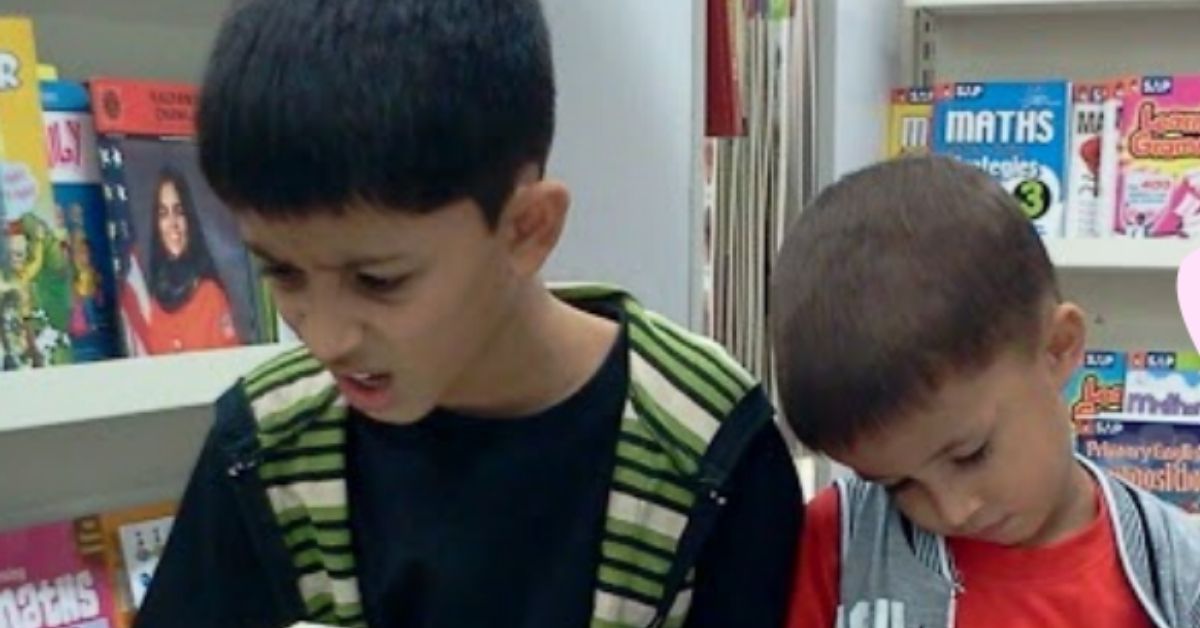
A typical day in the Pardiwala household begins at any time they like but each member is responsible for doing some work like cleaning, cooking, washing clothes, chopping vegetables, mopping, etc. The rest of the day is spent doing what they like.
While this may sound like a non-profitable deal especially to parents who feel guilty about not doing enough for their children. It is quite the opposite.
From the very beginning, both the kids were inculcated with the reading habit. Instead of teaching them a particular chapter, the boys are allowed to understand the concept on their own and only when there are doubts, the parents step in.
“As we grew, our dependence on parents to learn all subjects became less and less. We gathered knowledge from various resources apart from textbooks. If I was in class nine, it was okay to read the syllabus of higher standards. Our academics are not defined by years. We do not memorise, we understand the concept. We define and measure our own progress,” says Shahen.
Shahaan, who is meanwhile quietly processing his elder brother’s response, excitedly jumps in and shares his take on exams. In the last eight years, he has not appeared for any formal exams. He loves taking online tests for fun and prefers correcting his own paper.
“I don’t shy away from highlighting my errors. In fact, it helps me not to repeat mistakes. I take tests only for subjects that are not my strong points to monitor my progress. For me, fewer errors are more important than scoring high marks,” says Shahaan who recently scored 79 on 100 in an English test.
Ahead of examinations, the boys are neither expected to study for hours nor are stopped from leisurely activities. In between his board papers, Shahen was assisting his father in making short movies for YouTube.
“We have to trust our kids if they say they are prepared. This is a great way to ensure they are liable for their own actions and are ready to bear the consequences. A case in point is Shahen who scored 93% in boards,” says the proud mother.
This level of faith was also reflected when the elder one decided to quit college. He stated his goals of doing psychology and public speaking and delivered them.
Life skills and non-academic activities are other arenas that are given equal emphasis as education. At 21, Shahen is already filing his IT returns for the money he earns through his online training and books. Both the brothers can cook, clean and purchase almost everything, from groceries to gold.
“One day Shahen saw one dirty bottle of water and ended up cleaning all the bottles without anyone noticing. As a parent, I don’t have to micromanage or point out to-do things. My wife and I have our own lives and things to do. This is one of the reasons my sons learn things on their own and come to us only if necessary,” says Nozzer.
Shahaan and Shahen are always encouraged to pursue their interests whether it is directing movies, acting, dancing or adopting a dog. When Shahaan expressed he wanted to become a canine behaviourist, the parents got a dog to help him understand more about the profession.
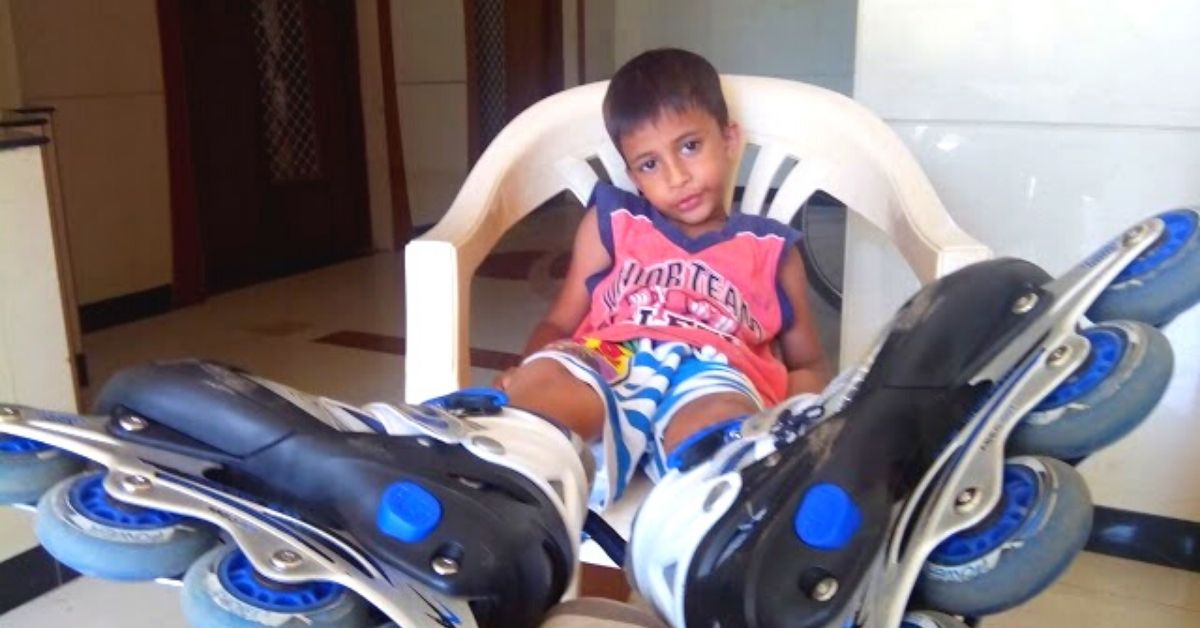
Several parents fear homeschooling might take away the socialising aspect of growing up. Sonnal and Nozzer too feared the same but quickly identified solutions by enrolling them in different activities.
There is no hard and fast rule when it comes to parenting or homeschooling. It is a constant process of learning and unlearning keeping children’s interests in mind.
However, if there is one motto that the Pardiwala family truly believes in is to sleep happy at night instead of fretting about what is going to happen next.
You can follow Sonnal and her blogs on homeschooling here.
(Edited by Vinayak Hegde)
If you found our stories insightful, informative, or even just enjoyable, we invite you to consider making a voluntary payment to support the work we do at The Better India. Your contribution helps us continue producing quality content that educates, inspires, and drives positive change.
Choose one of the payment options below for your contribution-
By paying for the stories you value, you directly contribute to sustaining our efforts focused on making a difference in the world. Together, let’s ensure that impactful stories continue to be told and shared, enriching lives and communities alike.
Thank you for your support. Here are some frequently asked questions you might find helpful to know why you are contributing?


This story made me
- 97
- 121
- 89
- 167











